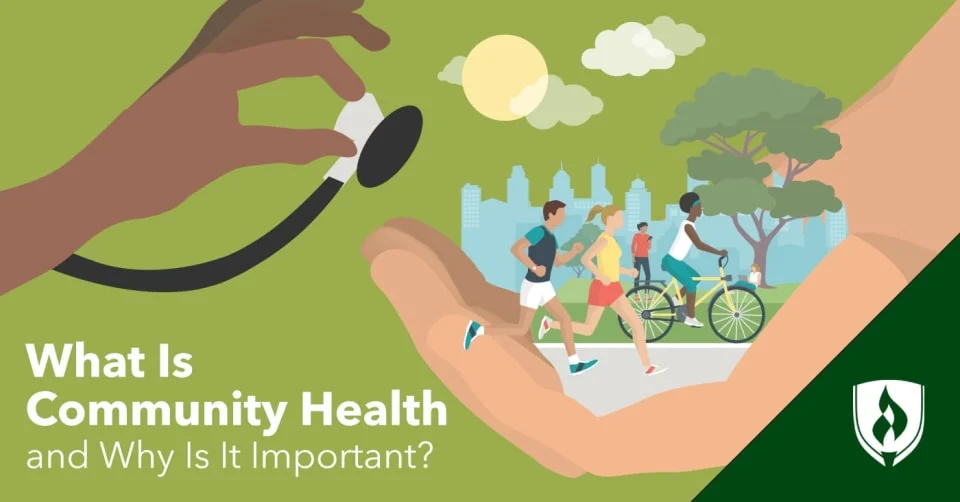Community health is an important and ever-evolving field that seeks to improve the overall health and well-being of local populations. It takes into account the environmental, social, economic, and political factors affecting a given community. Community health professionals work to understand the needs of their communities so they can develop interventions that best serve them.
What is Community Health?
Community health refers to the well-being and health status of a particular geographic location or community. This includes physical, emotional, mental, and social factors that affect the overall health of individuals within the community.
Community health is influenced by various factors such as access to healthcare services, environmental conditions, socioeconomic status, lifestyle choices, genetics, and cultural beliefs. The interplay between these factors may either promote good health or predispose individuals to illnesses.
To improve community health outcomes, intervention strategies must be tailored toward addressing specific challenges unique to each locality. Community-based initiatives such as public education campaigns on healthy lifestyle habits and preventive measures against diseases can help improve overall wellness within a given population.
Definition and Overview
Community health refers to the well-being and overall health of a particular group or population. It encompasses various aspects such as physical, mental, social, and environmental factors that contribute to the overall health status of individuals in a community.
The goal of community health is to prevent diseases and promote healthy living through education, awareness campaigns, and other interventions. Community health professionals work together with local government agencies, healthcare providers, public health organizations, and community-based groups to create programs that address the specific needs of their communities.
Some examples of community health initiatives include vaccination drives for infectious diseases such as flu shots or measles vaccines; school-based programs that promote healthy eating habits and physical activity among children; and outreach efforts aimed at improving access to healthcare services for underserved populations. Ultimately, community health is about empowering people within a given area with the knowledge and resources they need to live healthy lives.
Health Challenges in Communities
Community health refers to the overall well-being of a group of people living in a particular geographical location. It involves promoting healthy lifestyle choices and disease prevention strategies that benefit everyone in the community. Unfortunately, there are several health challenges that communities face, which can negatively impact their quality of life.
One of the most pressing health challenges faced by communities is access to healthcare services. Many communities lack adequate healthcare facilities or providers, making it difficult for residents to receive timely medical attention when they need it. This can lead to untreated illnesses and preventable deaths.
Another common challenge is poor nutrition caused by limited access to healthy foods or a lack of education about proper nutrition. This can lead to a range of chronic diseases such as diabetes, heart disease, and obesity. Addressing these challenges requires collaboration between policymakers, healthcare providers, educators, and community organizations among others.
Solutions and Interventions
Solutions and interventions in community health refer to the various approaches that can be employed to improve the health status of a population. These strategies may include disease prevention, early detection, and management of existing conditions through education and awareness campaigns, vaccination drives, screening programs, and targeted treatment plans. The ultimate aim is to reduce morbidity and mortality rates while promoting healthy lifestyles.
One effective solution for improving community health is through building strong partnerships between healthcare organizations, community leaders, local businesses, faith-based organizations, and other stakeholders. This approach creates an enabling environment for effective collaboration among stakeholders leading to improved access to quality healthcare services.
Another critical intervention strategy in community health involves empowering individuals with knowledge about their health status. This includes providing them with information on preventive measures such as proper nutrition habits or physical activity routines which help prevent chronic diseases such as diabetes or hypertension. Additionally, strategic engagement activities like training workshops often serve as a platform for educating vulnerable populations that require specialized care due to specific needs or disabilities.
Role of Healthcare Professionals
Community health is a field of public health that focuses on the well-being of individuals and populations within a particular community. Healthcare professionals play a crucial role in ensuring the success and effectiveness of community health initiatives. These professionals include doctors, nurses, social workers, pharmacists, and other allied healthcare staff.
The primary responsibility of healthcare professionals in community health is to provide preventive care services such as vaccinations, screenings for illnesses like cancer or heart disease, and educational programs about healthy behaviors. They work closely with patients to develop treatment plans that address their specific needs and help them manage chronic conditions such as diabetes or hypertension. In addition to providing direct patient care services, healthcare professionals also participate in research studies aimed at improving public health outcomes.
In conclusion, the role of healthcare professionals in community health cannot be overstated. They are instrumental in promoting healthy living habits among individuals and communities as well as providing essential medical care services when needed. Through their dedication and hard work, they contribute significantly towards enhancing the quality of life for all members of society.
Governmental Responses to Community Health Issues
Community health refers to the well-being and overall health of a particular community. It includes the physical, mental, and social aspects of individuals living within that community. Community health issues may arise from various factors such as environmental pollution, lack of access to healthcare services, unhealthy lifestyle habits or behaviors, poverty, and more.
In response to these issues affecting the overall health status of communities globally, governments have implemented different policies and strategies to address them. For instance, they have invested in public health interventions such as vaccination campaigns targeting specific diseases like malaria or influenza. Governments have also established public healthcare facilities providing primary care services at subsidized rates for people living below the poverty line.
Additionally, governments collaborate with non-governmental organizations (NGOs) to carry out awareness campaigns on healthy lifestyles and behaviors such as regular exercise routines or healthy eating habits. Furthermore, government agencies work together with community-based organizations (CBOs) in addressing environmental issues that affect community members’ health by enforcing regulations on waste management practices or promoting clean energy sources through incentive programs.
Conclusion: Empowering Communities Towards Better Health
Community health is the study and practice of improving the health status of a specific community’s population. It involves the promotion, prevention, treatment, and rehabilitation of illnesses or diseases that affect a community. Community health aims to empower individuals within their communities by providing them with access to healthcare services, education about healthy lifestyles, and resources for disease prevention.
In conclusion, empowering communities towards better health is crucial for achieving optimal health outcomes. Communities must have access to sufficient healthcare services that cater to their specific needs. This includes offering preventive measures such as immunizations and screening programs to detect chronic illnesses early on. Empowering individuals through education and awareness campaigns can also help promote healthy behaviors and prevent diseases from occurring in the first place. Ultimately, by taking a comprehensive approach towards community health, we can create healthier populations that are better equipped to handle any challenges they may face both now and in the future.










